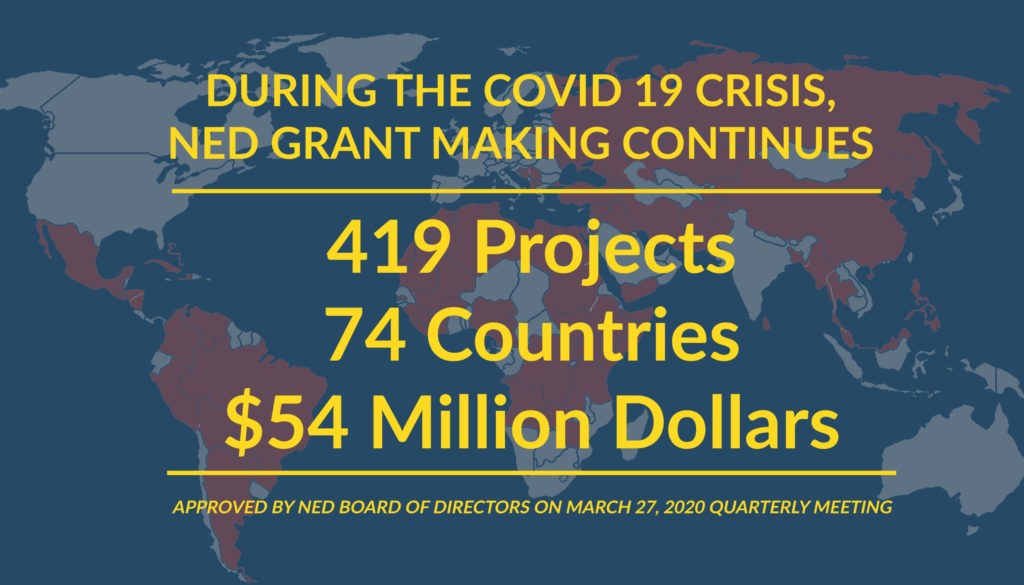
Like an asteroid, coronavirus is the textbook example of an exogenous shock. The threat came from beyond. Yet the pathogen offers a unique stress test of each country’s resilience, argues FT analyst Edward Luce, author of The Retreat of Western Liberalism.
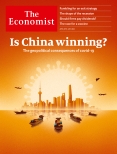 China’s post-covid propaganda push – its deployment of “sharp power” – does not entail offering a clear blueprint for shaping the global order. But back in 2017 Mr Xi gave a hint of China’s long game when he proclaimed that it had taken “a driving seat” in international affairs, the paper observes:
China’s post-covid propaganda push – its deployment of “sharp power” – does not entail offering a clear blueprint for shaping the global order. But back in 2017 Mr Xi gave a hint of China’s long game when he proclaimed that it had taken “a driving seat” in international affairs, the paper observes:
This does not appear to involve converting countries to Chinese-style socialism. China’s aims are often self-defensive, to protect itself from criticism and challenges to its territorial claims. …However, China does try to persuade others to adopt its peculiar view of human rights. It discounts individual freedoms, gives priority to economic development and thinks governments should police the internet as they wish.
What’s clear is the country’s current leader Xi Jinping is less interested than his predecessors in economic growth for its own sake, but harbors deep ambitions for a Chinese geopolitical rise, analyst Eva Dou and Liu Yang write for the Washington Post (HT:FDD).
In Hungary, Azerbaijan, Egypt, and Russia, strongman leaders are taking advantage of a distracted international community to reinforce authoritarian agendas, the Atlantic Council adds:
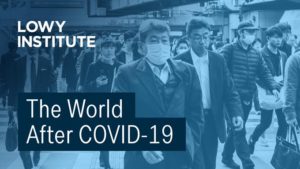 Former Penn Kemble fellow Melinda Haring and Doug Klain call up Ambassador Dan Baer, former US Ambassador to the OSCE; Elspeth Suthers, Senior Program Officer for the South Caucasus, National Endowment for Democracy (NED); Samuel Tadros, Senior Fellow, Hudson Institute; Anna Nemtsova, Moscow Correspondent, The Daily Beast; and Jacob Heilbrunn, Editor, The National Interest to discuss this troubling trend.
Former Penn Kemble fellow Melinda Haring and Doug Klain call up Ambassador Dan Baer, former US Ambassador to the OSCE; Elspeth Suthers, Senior Program Officer for the South Caucasus, National Endowment for Democracy (NED); Samuel Tadros, Senior Fellow, Hudson Institute; Anna Nemtsova, Moscow Correspondent, The Daily Beast; and Jacob Heilbrunn, Editor, The National Interest to discuss this troubling trend.
In contrast, national emergencies in the West do not breed despots, nor the grasping security state, notes Stanford’s Josef Joffe. Predicting an authoritarian takeover, the merchants of angst ignore four critical points, he writes for the American Interest:
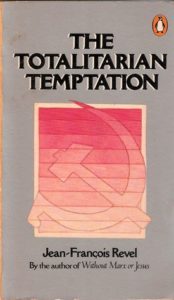 First, the liberal state gives far more than it grabs. In sharp contrast with the 1930s, when mass misery fueled the rise of tyrants, the Western welfare state delivers trillions in cash and liquidity to ease the pain and safeguard the economy’s future….
First, the liberal state gives far more than it grabs. In sharp contrast with the 1930s, when mass misery fueled the rise of tyrants, the Western welfare state delivers trillions in cash and liquidity to ease the pain and safeguard the economy’s future….- Second, the so-called security state does not wear jackboots. It is armed not with bayonets, but with the consent of the governed, which is another word for “legitimacy.” ……
- Third, manifest trust does not deliver a blank check, and the elected know it. The check is a loan, imprinted with a warning: “Your emergency powers, as in war, come with a sunset clause. We, the people, are the sovereign. Our prior rights are as unalienable as is the rule of law. We are not selling our birthright for a vaccine”…..
- Finally, the freedom of the press. In a real top-down system like China or Hungary, the muzzled media run on the leash of the state. They cannot expose malfeasance or manipulation, nor hold the mighty accountable. In the West, they do. RTWT
The NED’s international Forum asked five leading experts for their insights into what the #COVID19 pandemic reveals about mis- and disinformation:
- “Like the coronavirus, censorship knows no borders and can wreak havoc. News and information manipulation is a major obstacle to human progress. It restricts free will and destroys the ability to discern,” said Cédric Alviani @RSF_EECA
-
“While we build on our understanding of the infodemic, we face the spread of mis- and disinformation by small and large actors alike who seek geopolitical, ideological, and economic gains,” said @GrahamBrookie @DFRLab
- “The CCP uses specific tactics on social media platforms and in mainstream foreign media to manipulate public perception around its role in the coronavirus pandemic,” adds @Sarah_G_Cook @freedomhouse
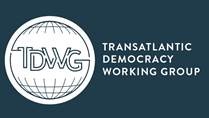 The U.N. system and the WHO badly need reform, but it’s not just about China. The coronavirus pandemic shows why we can no longer let dictators abuse international support to bolster their power, line their pockets, expand their cruelty and put our lives at risk, the Post’s Josh Rogin adds.
The U.N. system and the WHO badly need reform, but it’s not just about China. The coronavirus pandemic shows why we can no longer let dictators abuse international support to bolster their power, line their pockets, expand their cruelty and put our lives at risk, the Post’s Josh Rogin adds.
Devastating as it is, the pandemic provides a chance for transatlantic leaders to reestablish trust in democracy and transnational institutions by tackling the crisis and its aftermath in an open, responsible way, argue Susan Corke, Senior Fellow and Director of the Transatlantic Democracy Working Group, and Gregory Feifer:
In recovering from a complex crisis such as this one, which will require public trust and a whole-of-society response, democracies have a deeper arsenal than autocratic governments that were able to quickly institute heavy-handed steps to fight the pandemic in the short term. Democratic countries benefit from freedom of the press to inform the public, robust civil society to support vulnerable populations, and checks and balances to hold governments accountable.
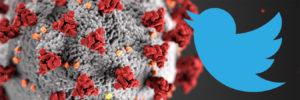
ASPI
A range of actors are manipulating the information environment to exploit the COVID-19 crisis for strategic gain, the Australian Strategic Policy Institute reports. ASPI’s International Cyber Policy Centre is tracking many of these state and non-state actors online, and will publish investigative data-driven reporting that focus on the use of disinformation, propaganda, extremist narratives and conspiracy theories. This first report includes 3 case studies that feature China, Taiwan, Russia and Africa. It finds:
- Elements of China’s diplomatic and state media messaging continue to demonstrate disinformation tactics more familiar to coordinated and persistent Russian state-sponsored disinformation
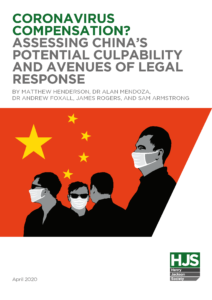 The Chinese state’s efforts to contest the information domain are supported by coordinated, although not necessarily inauthentic, pro-China patriotic trolling:
The Chinese state’s efforts to contest the information domain are supported by coordinated, although not necessarily inauthentic, pro-China patriotic trolling:
- For example, after WHO Director-General Dr Tedros accused Taiwan of racial attacks against him, a network of Twitter accounts purporting to be Taiwanese netizens started apologising to Dr Tedros via the hashtag #saysrytoTedros. Our research found 60% of these accounts had originally tweeted in simplified Chinese characters (used on the mainland) but switched to traditional characters (used in Taiwan) to tweet these apologies
- Russia-aligned disinformation is exploiting the COVID-19 health crisis as it unfolds in Africa to exacerbate tensions with the West
- Russia-linked actors have sought to exploit a controversy sparked when French medical scientists suggested in a television interview that a COVID-19 vaccine should be tested in Africa.
- For example, the controversy has been amplified by overtly state-sponsored media outlets (like RT and Sputnik) It has also been amplified by a network of Facebook groups previously identified as part of a Russian information operation targeting African countries.
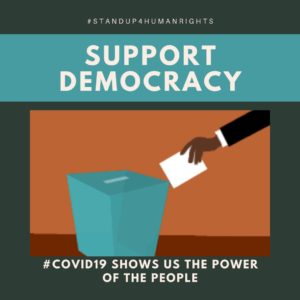
DRL
In support of democratic governance worldwide, the Bureau of Democracy, Human Rights, and Labor emphasizes the importance of international #HumanRights obligations and commitments. We call on countries to protect individuals’ freedom of expression, association, peaceful assembly and religion or belief during #COVID19 it tweeted today.
In the midst of the global COVID-19 crisis, the critical mission of supporting democracy and its advocates around the world continues, the National Endowment for Democracy (NED) said in a statement. On Friday, March 27, 2020, the NED Board held its quarterly meeting virtually, during which over 400 grants were approved and measures were taken to give grantees additional flexibility to adapt to the evolving challenges presented by the COVID-19 pandemic. NED President Carl Gershman also issued a statement of democratic solidarity to NED partners.
